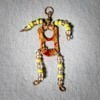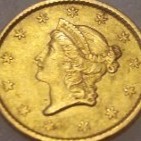British Coin In Back Yard
-
Similar Content
-
- 7 replies
- 2,686 views
-
- 12 replies
- 671 views
-
- 19 replies
- 978 views
-
New Permission Made Me Go To An Old One (update 2) 1 2
By F350Platinum,
- relic detecting
- relic found
- (and 1 more)
- 17 replies
- 8,735 views
-
- 23 replies
- 2,027 views
-
- 24 replies
- 1,850 views
-
-

.thumb.jpg.95344db3aeef0a4c6c73420daa366191.jpg)
.thumb.jpg.8761b3d9b3da119b9e6d1912f67275ad.jpg)








Recommended Posts
Create an account or sign in to comment
You need to be a member in order to leave a comment
Create an account
Sign up for a new account in our community. It's easy!
Register a new accountSign in
Already have an account? Sign in here.
Sign In Now